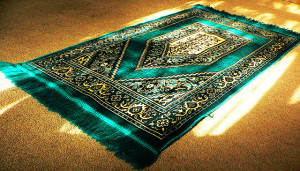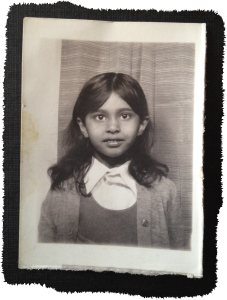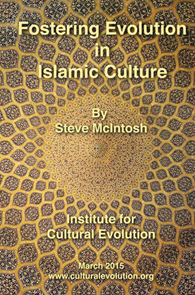When we’re born, I wonder how spiritually receptive we are prior to any religious conditioning. Is a spiritual connection to a larger universal Self an innate attribute of being human? One which almost immediately starts getting filtered through the cultural and religious framework that we’re born into?
I think so.
No matter which belief system we find ourselves absorbing by osmosis, very quickly our ‘unconditioned’ responses to life—to what’s inside us and outside of us—get molded to suit cultural norms. Do we lose touch with something in the dawning of our self-hood that we then spend the rest of our lives searching for?
I actually think I tasted this transition from an internalized connection to God to an externalized relationship with God very early on, as being a Muslim started to look like ‘something’.
An Abrupt Introduction
The first powerful imprint on my young mind in relationship to God must have been made when I was around four or five years old. We were still living in East London, and what happened was a deeply unsettling experience for me.
 One day, I remember carefully opening the closed door to our large living room to see a spectacle I’d never seen before. My father was standing on a long coloured carpet and seemed to be performing an odd ritual that I watched intently through the slightly ajar door. Something about what he was doing made me feel uneasy—as if I was seeing a side to my father that I didn’t know. His hands clasped across his belly, bowing up and down, then kneeling, and putting his head to the ground.
One day, I remember carefully opening the closed door to our large living room to see a spectacle I’d never seen before. My father was standing on a long coloured carpet and seemed to be performing an odd ritual that I watched intently through the slightly ajar door. Something about what he was doing made me feel uneasy—as if I was seeing a side to my father that I didn’t know. His hands clasped across his belly, bowing up and down, then kneeling, and putting his head to the ground.
It was too much for me, and I quickly closed the door and held my hands protectively over my own little chest. Somehow, I knew he was performing a ritual to connect with God. But I felt heartbroken because it seemed he was making a petition to some outside entity. It pained me. I didn’t want to relate to God outside of myself. I wanted my connection to remain inside, intimate.
And what made me sad, was suddenly knowing that some day, my parents would want me to perform the same ritual I saw my father carrying out. I felt my days were numbered. I don’t know how much of it is my own projection back in time now, but to my young self, it felt I was mourning an impending separation from God.
Later, I heard my parents talking about how I had walked in on my father doing ‘namaz.’ And they seemed pleased about it. It provided me with little comfort.
From what I recall, this may have been my first, albeit uninvited, introduction to what it meant to be born into a Muslim family.
“God is Closer to Man than His Own Jugular Vein”
In my first post I wrote how this teaching from the Quran, about God being closer than one’s jugular vein, struck a chord with me when I was very young. Could it be that the Quran was reaffirming what I somehow already knew to be true, but which only came to light in this moment of perceived ‘separation?’
And once that perceived separation was lodged in my mind, the allegiance to my inherited spiritual path was set in motion as the means to maintain the connection with God.
I think an intimate connection to God is and always has been there. Despite the retreat from Islam that I went through for much of my adult life, I believe this teaching in the Quran became recontextualized through my engagement with eastern teachings of non-dual consciousness: There is Only One, we are not separate, we are not separate from God.
It is with this conviction that I feel I can bring together my heritage of Islam with my journey through eastern teachings of meditation. They point to different aspects of the nature of God, and they both allow one to connect—intimately—with God.
(photo credit via flickr creative commons: puzzleyou)

